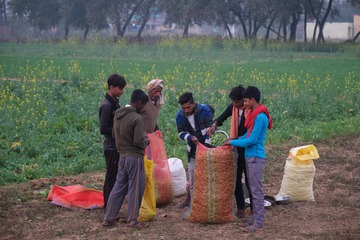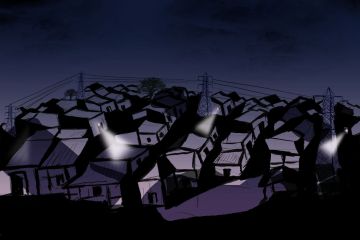
Fifteen years ago, Sumitra was one of the richest among the
lower rung of brothel owners in Sonagachi, Kolkata’s red light area. She ran 12
brothels that together housed more than 50 young women trafficked from
far-flung areas. In addition, many women paid her half their earnings for the
use of a bed. There was also money to be made when she sold the slightly older
girls to “madames” who could afford no better.
Today, she sits on the pavement in tattered rags, folding and sorting a





